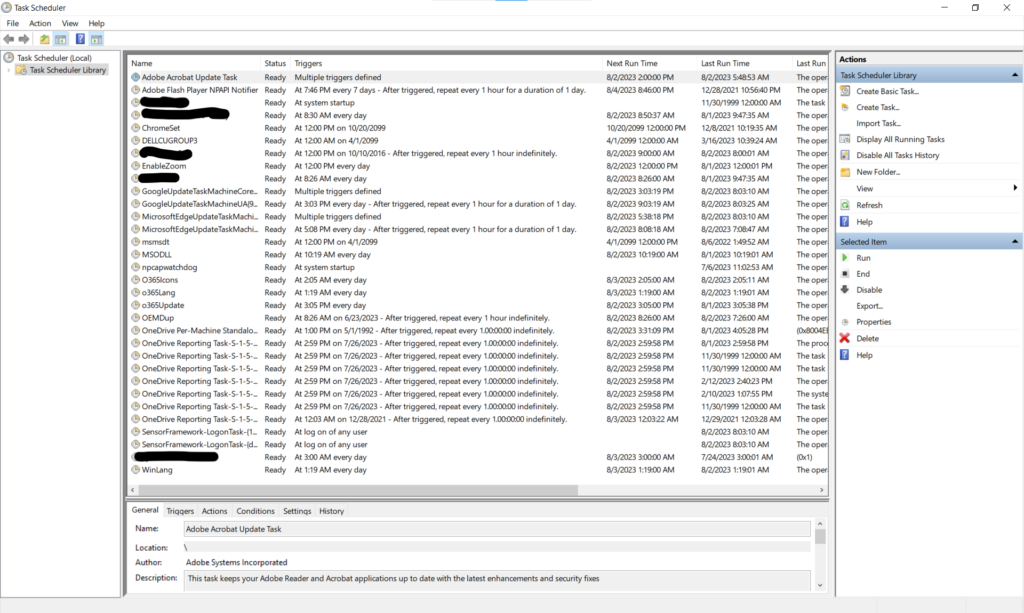
A new study has found US men appear to be following Mike Pence’s lead. Maybe they’re angry that #MeToo ever happened.
Source: Men now avoid women at work – another sign we’re being punished for #MeToo | Life and style | The Guardian
What a bizarre byline, and it’s telling just how vast the disparity in viewpoints is on this.
Years ago, I worked with several women in one small IT department.
- One I didn’t work with. We became pretty good friends.
- One was my boss. We didn’t get along with very well, though I respected her. We were both pretty hard-headed.
- One was my co-sysadmin. She was just great, though she was really reserved, and we didn’t talk much.
- And one was an absolute “section 8.”
What I mean is that this girl — she was very young — was looking for trouble. We ran into each other before she was assigned to my group. Despite her utter inexperience, she was put on a politically-important team; one that I wish I had been invited to be a part of. She was completely out of her depth with some minor tasks she had been given, and came to me for help. Obviously, I was already predisposed to not be forthcoming.
So it was that she came into my office, put both hands on my desk, leaned in, stuck her (perfect) chest out at me — and she was apparently cold, if you take my meaning — batted her eyelashes, and asked me for help I didn’t think she should need, if she were actually worthy of the responsibility given to her. I didn’t take the bait. I told her what she needed to know, and sent her on her way to finish figuring it out.
I moved groups. Rumors kept following her around. Every once in awhile, some dude would be implicated in doing something inappropriate towards her, and all the rumors just tracked according to what I had seen for myself. She was strutting around, and then complaining about the attention she was begging for. She was transferred into my group, and I just plain avoided her.
One day, out of nowhere, my boss walked into my office, sat down, and said — not asked — said, “You don’t like working with women, do you?” I was pretty sure that the “section 8” had been fulminating rumors about me to my boss, leveraging my already-strained relationship to reduce my influence in the group. I took a beat, realizing all of this, and then said that the situation was not equitable — even back in 2000 — and I was being cautious because of it. To explain, I told her the following story.
I had worked in our prototype and testing facility. In fact, I used to be one of the people on night shift that ran the tests, so I was pretty familiar with the processes.
In the engineering department, there was a husband and wife who were both engineers, and ran tests in the facility. They were yuppies: young, attractive, and well-groomed. Great people. I liked them immensely, and I hated that they moved away.
One day, the wife went to one of the test stand operators, and asked for an urgent test be run right away. The operator told her there were other tests in front of hers. The rumor was that she cupped her breasts, and said something like, “Oh, come on! You’ll do it for me, because I have these.” Of course, he ran her test.
Now, I knew her, and I knew the test stand operator. It was all in innocent fun, and it was a great thing about the old Arvin that this kind of thing could be done, and it not be a big deal. But this was post-Meritor takeover, and times were changing.
After relating the story, I asked my boss: What would have happened if the test stand operator had been a woman, and the husband went to her, cupped his privates, and suggested that she do his test next because he had that? Madness, right? Pandemonium. Firing on the spot. She agreed. I pointed out that we had started living in a very duplicitous society, and I was limiting my involvement with certain people because I was afraid of being implicated for something I didn’t intend.
She reluctantly conceded my point.
The rift of this double standard has only widened and deepened in the 25 years since, and I wouldn’t blame any man for protecting themselves from a potentially vindictive woman who does not like him. Mike Pence has taken a lot of flack for requiring his wife to attend any meeting between him and another woman. He is pilloried for his old-fashioned behavior, but even his detractors would have to admit in private that it’s the only way to make sure that he doesn’t get #metoo’d too, at some point.








